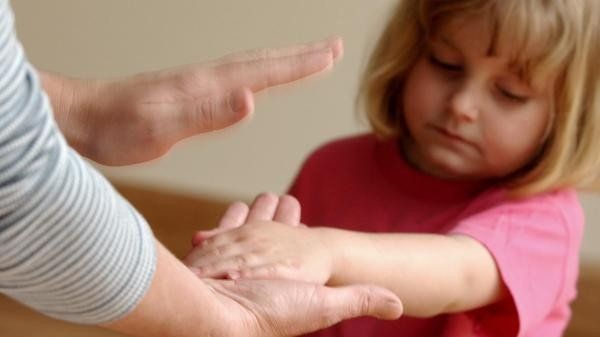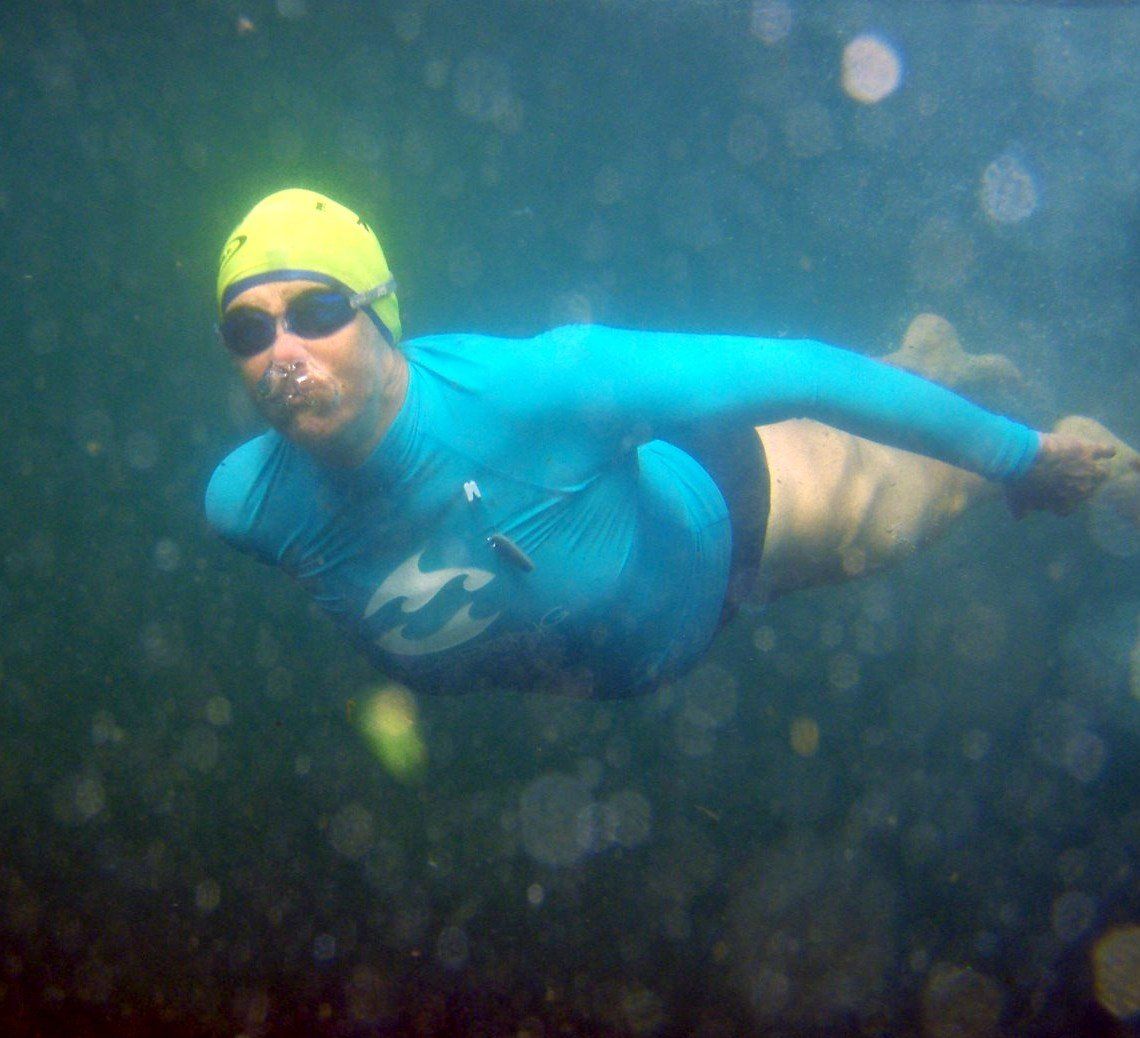Smacking children - should it be illegal?
- By Robin Barker
- •
- 12 Apr, 2017

Should we have laws making it illegal to smack children?
Fifty-one countries have laws banning the smacking of
children. In December 2016, France became the fifty-second country to bring in
a law banning smacking however, in January 2017, the short-lived law was overturned on technical
grounds.
The French law, intended to be read out to couples when taking their civil wedding vows, was largely symbolic as there was no criminal sanction for those found guilty of disobeying the law.
Penalties for smacking in some countries where the law exists, vary from fines to community service to restriction of parental care to jail time. It is unclear whether these penalties apply to assault and abuse or light smacking or both.
In most countries, unlike laws against child assault and abuse, there is no criminal penalty applied to anti-smacking laws.
What about in Australia?
Australia doesn’t have an anti-smacking law. Like many countries, we do have laws against excessive, harmful physical, emotional and psychological ‘chastisement’ that falls under the umbrella of child assault and abuse.
While details vary from state to state, smacking by parents in the home is deemed legally acceptable on the proviso that it doesn’t involve excessive force.
And in Australian schools?
When I was at primary school getting a whack with a ruler on
bare legs or knuckles was a normal part of school life.
In high school, girls escaped corporal punishment but boys were given ‘six of
the best’ on the palms of their hands for serious misdemeanours.
This continued, with variations according to individual teachers and principals, in many schools, private and state, until the 1990s.
Since the 1990s (some earlier, some later), many countries around the world have banned corporal punishment in state schools, and private schools receiving government funding.
In Australia, it’s left up to the states, which makes
interesting reading:
- Victoria, NSW, Tasmania have explicit legislation banning corporal punishment in all state and private schools
- Northern Territory – corporal punishment is banned in private schools but still allowed in state schools unless a parent expressly withholds consent.
- Queensland
– not explicitly banned but previous provisions that allowed its use was
repealed in 1989.
The Queensland Criminal Act still cedes authority to parents or figures acting in their stead to use ‘reasonable corrective force’, which could mean anything. - South Australia – similar to Queensland
- Western Australia – banned in state schools, not in private schools.
Regardless of the inconsistency and ambiguity most Australian schools don’t use corporal punishment however there are still a few private schools whose code of conduct includes physical discipline by the school principal.
*
Smacking children is deeply embedded in human culture
Despite physical punishment being condemned by most child experts for centuries, the hitting, spanking, slapping and caning of children has commonly been viewed as an acceptable and effective way to get children to behave the way adults would like them to behave.
This is frequently referred to as ‘disciplining’ children.
Discipline, a word that is still largely misunderstood, is not about
punishment. Discipline means to lead, teach, guide and influence. Smacking is
obviously at odds with leading, teaching, guiding and influencing.
While an increasing number of people – who are more likely to be in the younger age group – agree that smacking children is demeaning and counter-productive, others still believe that a return to corporal punishment (six of the best) would fix disciplinary problems in our schools and do a lot to improve our society overall.
It’s common to hear adults whose parents used physical force and/or who attended school in the days when canes and rulers were the norm, state that they probably deserved the whacks they got and that it didn’t do them any harm.
Browsing through the comment sections of online articles written on the topic of corporal punishment, I find it interesting - extraordinary even - that there are usually many more people supporting physical punishment of children than decrying it.
It seems that many people still sincerely believe that a good smack teaches children respect for their parents and elders.
As recently as 2015 Pope Francis announced that he thought parents should be free to smack their children as long as it was not done to humiliate them.
https://www.theguardian.com/world/2015/feb/06/pope-francis-parents-ok-smack-children-dignity
*
So, what’s wrong with the occasional smack?
It’s taking a long time for us to come around to the idea that smacking is not only wrong but illogical.
It makes no sense that we have laws and a great deal of media campaigning to raise awareness of and prevent domestic violence but at the same time accept that it’s okay for a bigger, stronger adult to whack a child.
The widespread belief that smacking children is a harmless and effective consequence for misbehaviour is at odds with most of the research (at least eighty studies since the 1950s), into physical punishment in the last sixty years.
The research
For anyone interested in checking out the research, it is easy to find a multitude of studies on the negative/positive results of corporal punishment via the internet.
A 2016 review and analysis of the research literature on
corporal punishment,
http://psycnet.apa.org/?&fa=main.doiLanding&doi=10.1037/fam0000191,
found that it was associated with increased defiance, childhood aggression and
anti-social behaviour as well as an increased risk of child abuse.
There was also a strong association with a decline in the parent/child relationship, poorer childhood mental health (increased anxiety and depression), lower I.Q.s and an increased risk that children exposed to corporal punishment will abuse their own children.
The review and analysis also found that smacking is ineffective. It doesn’t lead to long-term positive changes in behaviour.
The only positive to emerge from the studies is that the emotional impact of a smack – especially when it is rarely used – can have an immediate short-term positive result (the child quickly complies with the adult’s wishes).
*
But, a law banning smacking? Isn’t that over the top?
Surely there’s a difference between mild non-abusive physical punishment in a loving, stable home and borderline abuse?
One would imagine so but opinions on this are hotly debated.
Some researchers, for example, the highly regarded developmental
psychologist, Diana Baumrind (Berkeley, California) do agree with this sentiment.
Baumrind, who is not an advocate of corporal punishment in any form, concluded
from her research that the occasional smack in a loving home is not
detrimental.
According to her:
‘What really matters is the child rearing
context. When parents are loving and firm and communicate well with the child, children
are exceptionally competent and well-adjusted whether or not their parents
spanked them as pre-schoolers.’
Baumrind also found that studies of verbal punishment (nagging, yelling, name-calling, verbal threats) yielded similar negative results to those found in studies of corporal punishment.
However, a significant number of other researchers report that the majority of studies show that any corporal punishment – from a single, light smack to harsher forms – all result in the same negative child outcomes (albeit to lesser degrees) as the outcomes in children exposed to what is defined as assault and abuse.
Those in favour of anti-smacking laws say that placing a
legal ban on smacking removes the notion of a mild versus a harsh threshold of
violence. In their opinion, violence is violence full stop.
Considering that Australian legislation regards common assault to be an offence regardless of whether serious harm is done, this way of thinking has a certain logic.
Recently, a great deal of negative attention was generated by the Islamic idea that chastisement of wives by husbands with a light smack using a pencil or a scarf is fair and reasonable. So why do so many of us, horrified by the Islamic idea, think smacking children is okay if it's 'light'. A tad hypocritical methinks. Surely one is as bad as the other.
A smacking ban is intended to make not just parents, but all adults, understand that any violence is potentially harmful for children whether it be physical, verbal, emotional or psychological.

*
Problems with anti-smacking laws
Many people – perhaps justifiably - see anti-smacking laws as yet another way governments intrude into our lives and try to micromanage everything we do.
It is not clear how anti-smacking laws in the countries that
have them are policed.
Children dobbing on their parents? Tattling neighbours? Nosy in-laws? An angry
ex-spouse seeking child custody? A sanctimonious busy-body in a supermarket?
Nor is it clear how the law is/will be interpreted by the courts.
Making smacking illegal could well prove to be counter-productive.
As the law is involved, it could lead parents to cover up
the difficulties they are having rather than seek help.
The funding needed to investigate smacking charges, pay lawyers and administer a law that has no penalties could be better spent on parent education and parent intervention to reduce smacking, and provide other practical ways to help stressed-out parents who don’t know what else to do or where to turn.
*
On the other hand.
There’s no doubt that the aim of anti-smacking laws is a well-intentioned attempt to end a counterproductive practice that has been accepted as a reasonable way to ‘discipline’ children for centuries.
As previously mentioned, anti-smacking laws are largely symbolic. There is usually no criminal penalty, however knowing that smacking children is illegal may help parents think twice about smacking.
It might also help them realise that they don’t need to use physical punishment to get their children to behave the way they’d like them to.
It’s a counter to the parrot-like chant ‘I got a spanking when I deserved it and it didn’t hurt me’, favoured by so many to justify corporal punishment.
A law would also put paid to the few remaining schools where the code of conduct includes physical discipline by the school principal.
*
Sure, but do we really need an anti-smacking law?
Whether we need to go this far in Australia is moot.
There are definite trends here away from smacking in favour
of other consequences for misbehaviour, which appear to be growing without the bogeyman of a law hanging over parents' heads.
Parents need to feel they can get help if they find themselves lashing out and smacking from frustration and anger. Making smacking illegal may prevent this from happening.
I get the logic behind ‘violence is violence regardless of the threshold’ but I do have a problem lumping all corporal punishment into the one basket. As far as I’m concerned, the odd smack in a loving home is harmless and to make this illegal is over the top.
Many parents, particularly mothers of toddlers and
pre-schoolers, smack in moments of fear (pre-schooler runs on the road),
pressure from other parents (toddler bites other toddler), exhaustion and
frustration.
Instead of criminalising conscientious parents and putting them through the legal
wringer, it might be better to make more information available to help
them work out alternatives to smacking.
*
Full disclosure
During his childhood, my father was hit with a birch switch from time to time.
The razor strop was used in my mother’s family but mostly on her two brothers.
My father, a teacher, used a cane for the boys at school (occasionally).
In our home, there was a strap hanging on the dining room door. I was often threatened with it and received it a few times during my childhood for what were considered to be – at the time - serious misdemeanours (from memory being rude and disruptive, and lying about something or other).
I recall that various friends of my parents, in particular our Presbyterian
minister, were appalled when they saw the strap hanging on the handle of our lounge room door and realised what its purpose was.
I don’t appear to have been harmed by the corporal punishment I received at home or at primary school, however the fact that I ‘turned out okay’ is down to my loving, stable, middle class home and my education – not because I was smacked. I’m confident the end result for me would have been the same without the strap and the ruler.
I smacked my children occasionally when they were
toddlers/pre-schoolers. Not to ‘discipline’ them but because I was angry and
frustrated.
The fact that I was smacked – by otherwise loving parents - helped
me justify my actions, however I also felt guilty and miserable about it.
It’s not something I lie awake at night and agonise over, but if I had my time again I would make every effort not to smack my children.
As far as I’m aware, my grandchildren have never been smacked- and never will be smacked - either at school or in the home.

*

Robin Barker: Baby Love, The Mighty Toddler, Close To Home